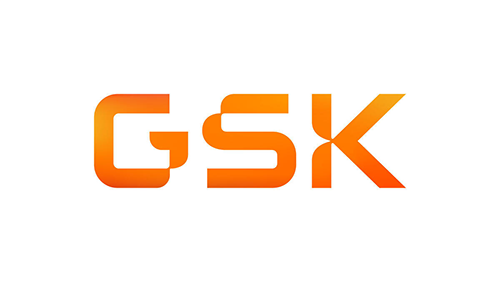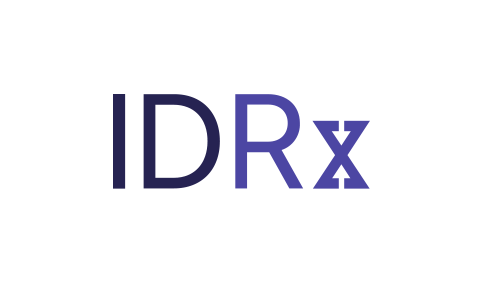IDRx Reports Updated Preliminary Phase 1 Data from Ongoing Phase 1/1b StrateGIST 1 Trial Supporting Best-in-Class Potential for IDRX-42 in Patients with GIST
- Encouraging signs of activity were observed, including a 23% objective response rate (ORR) across all patients (median four prior lines of therapy) and a 43% ORR across second-line patients
- Favorable tolerability profile was observed, consistent with use in front-line and second-line settings
- Data to be highlighted in an oral presentation today at the 2024 American Society of Clinical Oncology (ASCO) Annual Meeting
PLYMOUTH, Mass, June 3, 2024 – IDRx, Inc., a clinical-stage biopharmaceutical company dedicated to transforming cancer treatment with purpose-built precision therapies, today announced updated preliminary clinical data from the Phase 1 portion of the company’s ongoing StrateGIST 1 study of IDRX-42 in patients with advanced gastrointestinal stromal tumors (GIST). These data will be highlighted today in an oral presentation at the 2024 American Society of Clinical Oncology (ASCO) Annual Meeting.
IDRX-42 is a novel, KIT mutant-selective, tyrosine kinase inhibitor (TKI) that has potent activity against both the key activating mutations and broad coverage of the clinically relevant resistance mutations in KIT-driven GIST. IDRX-42 was designed to overcome the twin challenges of on-target treatment resistance and off-target driven adverse events, which limit the clinical benefit of currently available TKIs.
“There is a significant unmet medical need for next-generation therapies for GIST patients. Current standards of care either lack the breadth of resistance mutation coverage necessary for patients to realize long durations of response or disease stabilization, or they lack selectivity, resulting in unwanted side effects, or both,” said Professor Patrick Schöffski, M.D., M.P.H., Head of the Department of General Medical Oncology at the University Hospitals Leuven. “These promising Phase 1 data support the potential of IDRX-42 to provide meaningful clinical benefit for GIST patients, with encouraging evidence of clinical activity in patients with activating KIT mutations in exons 9 and 11, as well as in patients with clinically relevant resistance mutations in KIT, importantly those in exons 13 and 17.”
Updated Preliminary Clinical Data Summary
- As of the data cut-off date of April 28, 2024, 73 patients have been treated with IDRX-42 in the Phase 1 portion of the ongoing StrateGIST 1 trial across dose cohorts ranging from 120 mg once daily (QD) to 600 mg twice daily (BID). All 73 patients had KIT-mutant GIST. 66 patients were evaluable for efficacy as of the time of the data cut-off. Patients who were efficacy evaluable must have had at least 1 post-baseline tumor assessment or had clinical progression or death before the first post-baseline tumor assessment.
- While a maximum tolerated dose was not reached, dose escalation in the Phase 1 portion of the trial has completed, and the Phase 1b dose confirmation portion of the trial has been initiated utilizing a dose of 300mg tablet formulation, which is equivalent to the 400mg capsule formulation.
- Patients were heavily pretreated, with a median of four prior lines of therapy.
- 19% (14/73) patients had received one prior line of therapy.
- 11% (8/73) patients had received two prior lines of therapy.
- 70% (51/73) patients had received three or more prior lines of therapy.
- 74% of patients remained on study treatment, and the median duration of treatment was 16 weeks as of the data cut-off.
- 100% of second line patients remained on treatment as of the data cut-off.
- The objective response rate (ORR) by modified RECIST v1.1 in the efficacy evaluable population was 23% (15/66) treated across all lines of therapy, of which all were partial responses (12 confirmed PRs, 3 pending confirmation).
- The ORR across second line patients was 43% (6/14; 4 confirmed PRs, 2 pending confirmation).
- In analyses of circulating tumor DNA (ctDNA), reductions in mutant allele fraction were observed consistently across KIT mutations detected in baseline samples.
- Reductions in mutant allele fraction, including to undetectable levels, as best response were observed in exon 9 and 11 activating mutations, and in resistance mutations exon 13, 14, and 17.
- IDRX-42 exhibited a favorable safety profile and treatment-related adverse events (TRAEs) were mainly low grade.
- The most frequently reported TRAEs (≥20%) were gastrointestinal symptoms (diarrhea, nausea, decreased appetite, vomiting, dysgeusia) and fatigue.
- Gastrointestinal adverse events were Grade 1 in most patients, when they occurred.
- A low rate of dose modifications due to TRAEs was observed at the 400mg QD dose level, with only 6% dose reductions, 9% dose interruptions, and 0% discontinuations due to TRAEs.
- Dose-limiting toxicities (DLTs) were observed in 3/73 patients at doses of 600 mg, 800 mg and 1200 mg, respectively. All 3 patients elected to reduce dose and remained on study as of the data cut-off (range: >3 to >11 months); 2 of these patients have achieved a confirmed PR at a reduced dose of 400 mg QD.
- The most frequently reported TRAEs (≥20%) were gastrointestinal symptoms (diarrhea, nausea, decreased appetite, vomiting, dysgeusia) and fatigue.
- A flat and dose-linear pharmacokinetic profile was observed.
“In this dataset, IDRx has presented preliminary proof-of-concept of IDRX-42 supporting its potentially best-in-class profile in patients with GIST,” said Tim Clackson, Ph.D., Chief Executive Officer of IDRx. “Importantly, we believe these efficacy and safety data support our plan to move IDRX-42 rapidly into early lines of therapy, including second-line and front-line, where patients haven’t seen a new treatment option in over 15 years.”
“We are excited for these data to be presented today, as they support all aspects of our target product profile, including evidence of potent activity against relevant activating and resistance mutations in KIT, combined with a favorable safety profile,” said David Kerstein, M.D., Chief Medical Officer of IDRx. “Across a wide dose range and in this heavily pre-treated patient population, promising signs of clinical activity have been observed, and the initial data compares favorably against approved therapies and those in clinical development. We are encouraged by the emerging safety and tolerability profile, characterized mainly by low grade, manageable gastrointestinal adverse events with a notable lack of adverse events generally associated with off-target activity, such as hand-foot skin reaction and hypertension, supporting the overall selectivity of the molecule. We would like to express our gratitude to the patients and investigators for their participation in the ongoing StrateGIST 1 study.”
The Data Will be Highlighted in an Oral Presentation at the 2024 American Society of Clinical Oncology (ASCO) Annual Meeting:
Title: StrateGIST 1: A first-in-human (FIH), phase 1 study of IDRX-42 in patients with metastatic gastrointestinal stromal tumors resistant to prior treatment with tyrosine kinase inhibitors (TKIs)
Presenter: Patrick Schöffski, M.D., M.P.H.
Abstract Number: 11501
Presentation Type: Oral Abstract Session
Session Title: Sarcoma (Sub Track Gastrointestinal Stromal Tumors)
Time: 3:12 P.M. CDT
About GIST
Gastrointestinal stromal tumors (GIST) are the most common subtype of soft tissue sarcoma. Approximately 80% of cases arise from gain of function mutations in the KIT receptor tyrosine kinase, driving the malignancy through constitutive activation of aberrant signaling. Resistance mutations in KIT emerge in ~90% of patients treated with imatinib, the current standard of care for GIST. In unresectable or metastatic GIST, clinical benefits from existing treatments can vary by mutation type.
About the StrateGIST 1 Study
StrateGIST 1 is an ongoing, open-label, first-in-human Phase 1/1b study designed to evaluate the safety, tolerability, pharmacokinetics, and preliminary antitumor activity of IDRX-42 in patients with metastatic and/or surgically unresectable GIST after failure of imatinib and other approved drugs. The study is currently enrolling patients with documented pathogenic mutation in KIT or any platelet-derived growth factor receptor alpha (PDGFRA) mutation (other than PDGFRA exon 18) at sites in the U.S., Belgium, Germany and Spain. The Phase 1b portion will include expanded exploratory cohorts based on defined lines of prior TKI therapy.
About IDRX-42
IDRX-42 is a potent, oral, highly selective KIT inhibitor targeting all major categories of activating and resistance mutations in patients with KIT-mutant GIST (including variants in exons 9, 11, 13 and 17). In preclinical studies, IDRX-42 demonstrated superior antitumor activity compared to imatinib, the current first-line of therapy, in GIST human xenograft models expressing mutations in KIT exons 9 and 11. In xenograft models expressing secondary resistance mutations in KIT exon 13 or 17, IDRX-42 treatment resulted in potent and dose-dependent antitumor activity superior to the second-line standard of care agent, sunitinib. IDRX-42 is currently being evaluated in a first-in-human Phase 1/1b study.
About IDRx
IDRx is a clinical-stage biopharmaceutical company dedicated to transforming cancer care with intelligently designed precision therapies. IDRx aims to address the limitations of today’s precision cancer medicines with highly potent and selective targeted therapies to stop key tumor escape mechanisms and prolong response to therapy. IDRx’s lead program is IDRX-42, designed to inhibit key genetic drivers and drug-resistant mutations of KIT in gastrointestinal stromal tumor (GIST). IDRx’s pipeline also includes a second KIT inhibitor, IDRX-73. Founded in 2021, IDRx’s leadership team has extensive experience in drug development and collectively has been involved in the discovery, development, and commercialization of more than 10 approved medicines. To learn more, please visit www.www.idrx.com and follow us on LinkedIn.
Media Contact
1AB
Katie Engleman
katie@1abmedia.com

